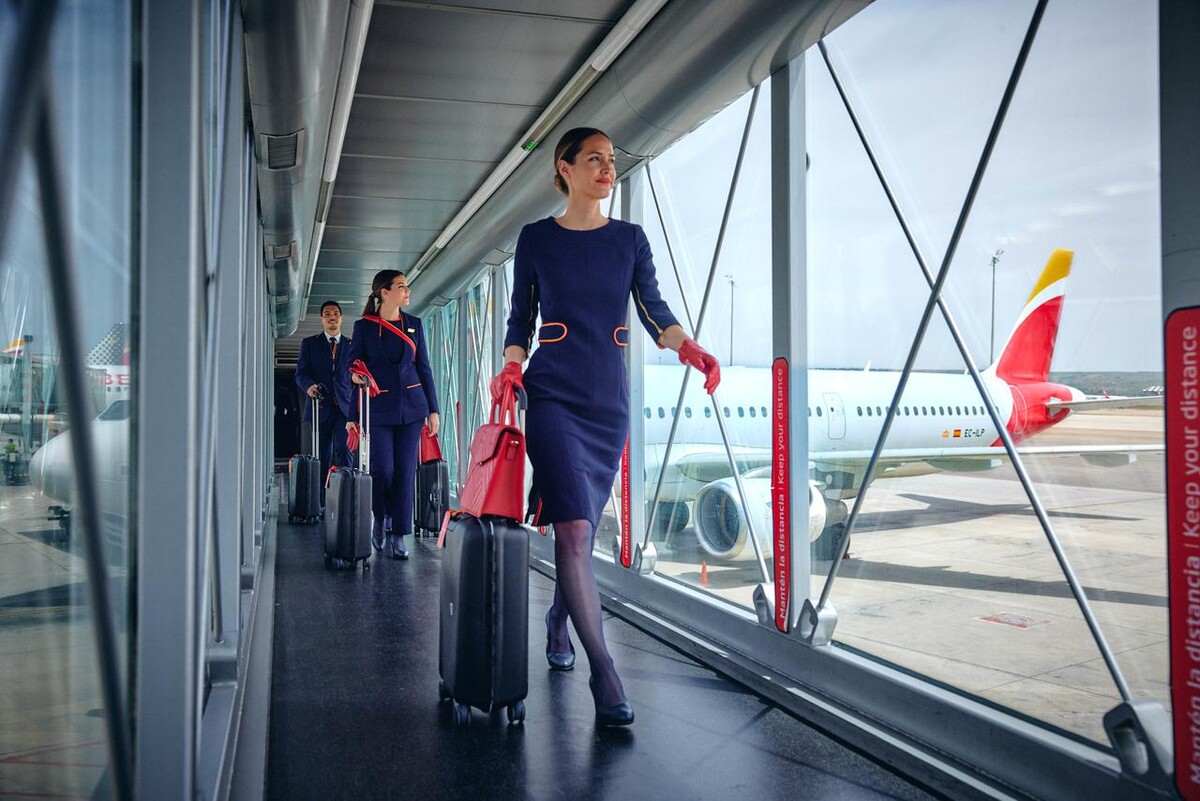Access selected deals available with budget and full-service airlines
Lock any airfare that sounds great. You don’t lose anything if you cancel it
Call us anytime for any assistance. We do not go into hibernation
Your personal and financial information stays secure with us
Iberia Líneas Aéreas de España, S.A. Operadora, commonly known as Iberia, is Spain’s flag carrier, headquartered in Madrid with its primary hub at Adolfo Suárez Madrid–Barajas Airport (MAD) and a focus city at Barcelona–El Prat Airport (BCN). Founded on June 28, 1927, Iberia is one of Europe’s oldest airlines, operating 159 routes to 53 countries across Europe, Africa, Asia, the Middle East, and the Americas, with approximately 18 million passengers annually. A member of the oneworld alliance since 1999, Iberia is part of the International Airlines Group (IAG), formed through its 2011 merger with British Airways. The airline holds a Skytrax Four-Star rating and is known for its Spanish hospitality, modern fleet, and extensive Latin American network. Its subsidiary, Iberia Express, operates short- and medium-haul low-cost flights, while Iberia Regional (operated by Air Nostrum) serves domestic and regional routes.

Iberia began as Compañía Aérea de Transportes, with its first flight between Madrid and Barcelona on December 14, 1927, using a Rohrbach Ro VIII Roland. In 1929, it merged into CLASSA (Compañía de Líneas Aéreas Subvencionadas), becoming Iberia under government control during the Spanish Civil War. Post-war, Iberia launched transatlantic flights to Buenos Aires in 1946, becoming the first airline to connect Europe and South America after World War II. The 1954 Madrid–New York route, flown with Lockheed Super Constellations, marked its U.S. entry, boosted by the 1953 Pact of Madrid eliminating U.S. visa requirements for Spain.
The 1960s saw jet integration with Douglas DC-8s, followed by Boeing 747s and Douglas DC-10s in the 1970s, expanding Latin American routes to nearly all capitals. Iberia invested in regional carriers like Aerolíneas Peruanas and PLUNA, creating a distribution network, though state control under the Franco regime tied investments to diplomatic goals. Privatized in 2001, Iberia modernized, launching www.iberia.com and joining oneworld. The 2009 merger agreement with British Airways, finalized in 2011 under IAG, created the world’s third-largest airline group by revenue. In 2012, Iberia Express launched, and in 2013, a new logo and livery were unveiled. By 2016–2017, Iberia was the world’s most punctual major airline, per FlightStats, and introduced Airbus A350-900s in 2018. In 2024, Iberia added routes to Ljubljana and Tirana, reinforcing its European network.
Iberia operates an all-Airbus fleet of 94 aircraft: 20 A319-100s, 28 A320-200s/neos, 16 A321-200s/neos, 12 A330-200s, 5 A330-300s, and 13 A350-900s, with an average age of 9 years. Orders include 12 A321XLRs and additional A320neos, with deliveries expected through 2027. The A350-900s, featuring Recaro CL6720 suites with sliding doors, serve long-haul routes like Madrid–New York and Madrid–Mexico City, while A320s/A321s handle European and domestic flights. Iberia Express and Iberia Regional (Air Nostrum) operate 24 A320s and 33 ATR/CRJ aircraft, respectively.
Iberia serves 159 destinations, including 15 domestic, 60 European, and 35 long-haul routes to cities like Bogotá, Miami, and Tokyo. Madrid–Barajas (MAD), handling 60 million passengers annually, is a key transatlantic hub, offering 45-minute minimum connection times. Codeshares with 20 airlines, including American Airlines, Qatar Airways, and Avianca, expand connectivity to 900+ destinations via oneworld. Iberia’s cargo division, IAG Cargo, transports 200,000 tons annually, focusing on perishables and pharmaceuticals. The airline operates 600 daily flights, with high-frequency routes like Madrid–Barcelona (30 weekly).